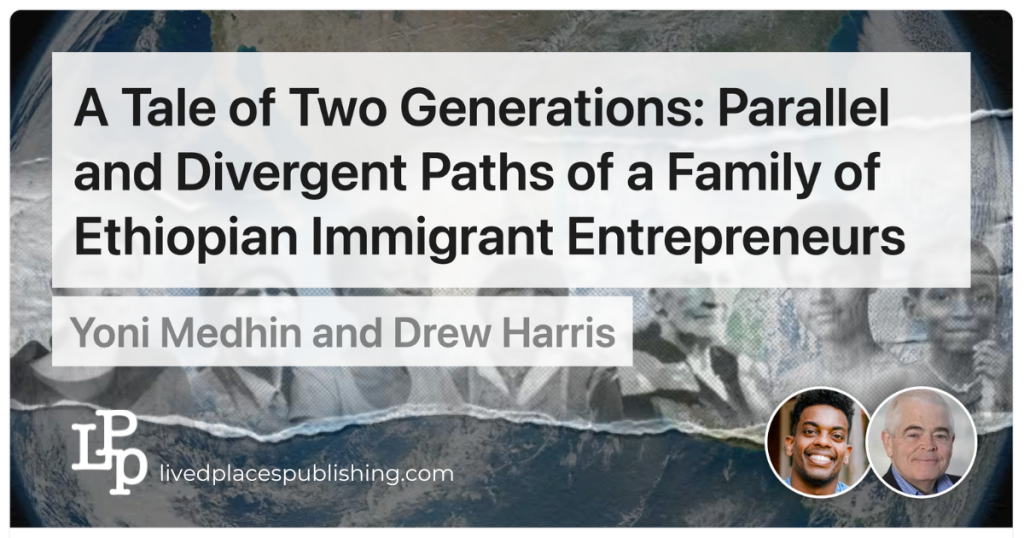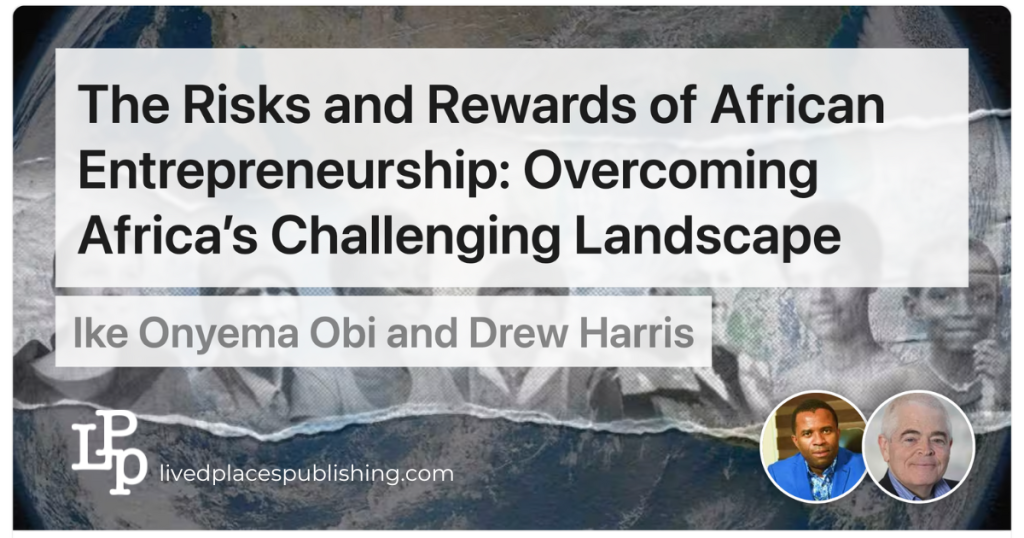By Dr Drew Harris, Collection Editor
Entrepreneur: French, from Old French, from entreprendre – ‘to undertake.’
Over the last two decades, entrepreneurship has become a hot topic in popular press, textbooks and classrooms. Most of the focus has been on either scalable, investable ventures or “main street” ventures – those that rely upon personal (or personally connected) funding and are tied to place (retail, services, construction, etc.). We develop and teach models that fit a “normal” audience. But, what about all the undertakings that are not “normal”, that occur in places unexplored in our standard textbooks?
In the Lived Places Emergent Entrepreneurship collection, I want us to illuminate the lived experiences of entrepreneurs who do not neatly fit our models, or for whom the models don’t work. When entrepreneurs come from a particular community, what opportunities do they have, or are limited from, because of their community? Do our models work across genders, races, and national origins? What can we learn from grey- and black-market entrepreneurs? How do incarcerated persons engage in entrepreneurial ventures – both during incarceration and after? How do entrepreneurs operate in politically unstable environments, with little community infrastructure, unstable banking, rampant corruption, and overbearing governmental bureaucracies? Most importantly, what can we learn and find useful from examining the lived experience of entrepreneurs at the edge?
What stories might find a home here?
Consider the experience of a charismatic, young, female, African-American woman, whom Forbes magazine dubbed as a ‘the next Steven Jobs’, but who struggles to find funding. At the same time, “bros” from Silicon Valley raise tens of millions in venture capital dollars for competitive, but demonstrably inferior, products. What might we learn about “real” entrepreneurship as she navigates alternative paths to sustain her venture?
Consider the tech entrepreneur in Honduras, providing design and coding services to other entrepreneurs. The business is challenged because of unreliable internet, government restrictions on how funds move through the economy, a paucity of official street addresses, and unreliable mail and package delivery from the address issues and from theft. How does one build ventures in those circumstances?
Consider the myriad collective business models that receive scant attention – producer cooperatives, retail cooperatives, community or mutual banks, pooled funding and supply chain management among immigrant communities (think of the Korean green grocers in New York City). What of 501c3 ventures and others that rely upon volunteers? Do we have resources or stories of how to start a successful multi-level marketing business, particularly ones that supply non-mainstream communities?
Consider social entrepreneurship. Many communities that might benefit from social entrepreneurship also share the perspective “nothing for us or about us, without us.” Where is this practiced? Do social entrepreneurs who come from the target market/audience perform differently than those that arise from more privileged backgrounds, and who are not from or connected to the target market?
Increasingly, younger people feel that they do not fit descriptions of ‘normal’ and are living at the edge. Entrepreneurs often experience their perspectives as not normal, that they dance along the edge of normal. My hope is that a richer understanding of entrepreneurship, one that is rooted in place and particular circumstances, will give young and prospective entrepreneurs hope, a potential map, and a place to undertake their dreams and heart’s desires.
To submit a proposal, please click here: Call for Authors
To find out more about the vision for the Education Studies collection, or to get in touch with Dr Drew Harris, please click here: The Emergent Entrepreneur collection
To stay connected with Lived Places Publishing, you can subscribe to our email list, to our channel on Medium, or to our Substack list.
IMAGE CREDIT: Daria Nepriakhina 🇺🇦 on Unsplash



